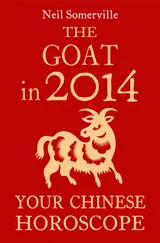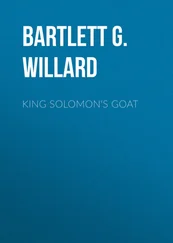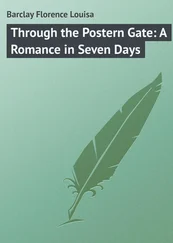I got out of the vehicle and shut the door. Leaving me alone in the middle of the city, the Arab sped away.
I wept. I had realized that Allah occasionally travels even in a luxury car.
Eyes wide open, I stood in that area for some time. I could see those who went past me stare at me like I was a strange creature. I walked slowly, keeping to the side of the road. It was a market alongside a long, winding road. All around were heaps of vegetables and fruits. Their soft odour hung in the air. Crowds of Arabs flowed like a river. Women, with only their eyes showing, moved around in black robes. There were many Indian vendors. The sound of commerce. And among them all, I stood out looking like a primitive man. Everyone stared at me and tried to skirt around me to avoid touching me. I didn’t feel hurt. In fact, even I could smell my stink.
I was very hungry. But I didn’t have any money to buy food. During my life in the Gulf, that was the first occasion when I felt the need for money. Had I been in the masara, I could have eaten the arbab’s khubus at least. I didn’t need money for that. I could have eaten the wheat meant for the goats. Money wasn’t required for that either. But one had to pay money to eat anything in the city. Who would give me food without money in exchange? I tried to enter one or two shops. I even begged for food. But their owners drove me away as if I were a despicable stray dog.
With hope springing anew in my heart, I walked through that market. I felt dizzy after walking for some time. I must have walked a little further when I spotted a board with ‘Malabar Restaurant’ written on it. Such relief! An assurance that someone who could understand my language was in there. Someone who could understand what I said. I steeled myself and walked towards it.
I have no recollection of what happened after I reached the place. Later I heard that I fainted on the steps.
In every Arab city, there is a loving, shelter-giving banyan tree.
It was in front of Kunjikka’s hotel, a refuge for Malayalis in Batha market, that I had fainted. Note the loving ways of Allah. I, who was a stranger to that market, could have strayed anywhere and could have fainted elsewhere. Nobody would have cared for me. But Allah had decided that I was to reach Kunjikka. So I walked that way, reached the doorsteps of the Malabar Restaurant and fell down. He had trusted Kunjikka’s heart to take care of the rest.
On the third day after reaching the city, when I opened my eyes, I found myself in Kunjikka’s room. When I regained consciousness there was a heavy ache in my hands and legs. There was a needle in my arm and I had been on a drip. I wondered if I was in a hospital. Still, seeing Malayalis around me, I wept. Taking my hand in his, Kunjikka consoled me. I had become a topic of conversation among the Malayalis of Batha. When they heard I had regained consciousness, many of them rushed into the room. They brought me apples, oranges, grapes and bananas as gifts. Everyone wanted to know my story. How did I end up in that state? How did I land there? Their curiosity was written on their faces. But nobody asked me anything. It was only after another two days, after a doctor came, examined me and removed the drip, that Kunjikka gently asked me for my story.
‘I need a mirror,’ I said.
‘Why a mirror?’ Kunjikka, who was sitting beside me, asked.
‘I just want to see myself.’
The others present stared at one another.
I just wanted to see myself as everyone saw me, the man everyone thought was pitiable.
One of them brought me a small mirror. I looked at myself. I stared at it for a long time. I couldn’t recognize myself at all. The person I saw there was a stranger. His hair was cut short, his beard shaved off. The man in the mirror was not the one who had set off from the homeland. I was someone else altogether. A dark, frail, skinny figure with protruding teeth. Had I been told on any other occasion that the person I saw in the mirror was me, I would not have believed it.
Kunjikka explained to me how he and his workers held me as I fainted and brought me into his restaurant to give me food and water; how I was taken to his room; how, with tender care, he bathed me on that day, the next and the day after; how a barber was brought in to cut my hair and shave my beard; how a doctor was brought in to examine and treat me. But my unconscious mind had not registered any of these events.
I had nothing to give them except my tears. I didn’t even have any love to give in return. I had only one regret, that they didn’t take my photo before cutting my hair and beard. I never got to see the primitive shape I had been in. Today, I don’t have any evidence to produce before you as proof of that life. Only my experience and memories. Even the passport that testified my arrival in that country was in the custody of the arbab …
‘What date is it today?’ I asked those who were gathered there.
‘It’s the thirteenth.’
‘Which month?’
They frowned. ‘August.’
‘Which year?’
They became anxious. ‘Nineteen ninety-five.’
‘Lord! Rabb al alameen …’ I placed my hands on my chest. Then I calculated the time that had elapsed.
‘Three years, four months, nine days.’
Those who heard me were dumbstruck.
Then, after two more days, when I was able to walk a little, Kunjikka took me from that room to the next one. There was a telephone in that room. Kunjikka made me sit before it.
‘Don’t you want to call home? Don’t you want to hear the sound of your ummah and your wife?’
I cried. I didn’t have a telephone at home. I told him the telephone number of the Moplah neighbour. I still wonder how I had remembered that number, which I had not used for such a long time. It was from Bombay that I had called that number the last time.
Kunjikka spent a very long time in front of the telephone. The connection wasn’t getting through.
Finally the phone rang at the other end. He gave me the receiver. I had to try hard to make my neighbour recognize me. When he finally did, there was a brief silence. Then he asked, ‘Where have you been so long, Najeeb?’
I didn’t have any answer. I could imagine the many stories that might have spread about me back home.
‘Call after quarter of an hour. I will fetch your wife,’ he said.
Those fifteen minutes were longer than the three years I had spent in the masara. Kunjikka finally dialled the number again.
This time, it was easy. Kunjikka gave me the receiver. I only said hello. I heard the loud wailing of my Sainu at the other end. Then for a long time, both of us could only cry. She didn’t ask anything. Where have you been? Why haven’t you called till now? Sitting there, she must have read my mind.
After crying for some time, she said, ‘Our son Nabeel has started going to kindergarten this year. Don’t you want to see him? When is ikka coming home? Ikka, our ummah is no more. Last year. She died heartbroken, not hearing a word about you …’
I didn’t have the strength to hear anything more. I put the receiver down. My mind throbbed with pain. Covering my face, I wept. Kunjikka consoled me. ‘Haven’t you suffered so much, Najeeb? All that that was given to you was given by Allah. We don’t have any right to question His will.’
Feeding on Kunjikka’s generosity, I stayed with him for a period of three months. There, in the shelter he provided, my wounds healed. The swelling on my legs reduced. I regained my health. And at different times, I recounted my story to Kunjikka and friends. Many of them refused to believe my story. Only a few believed me. Even those who believed me, found the disappearance of Ibrahim Khadiri inexplicable. Their doubts were justified. I don’t have any proper explanation to offer.
Читать дальше
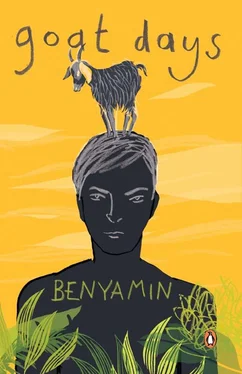
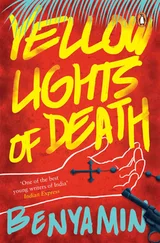

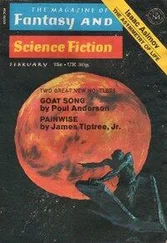
![Джон Харгрейв - Mind Hacking [How to Change Your Mind for Good in 21 Days]](/books/404192/dzhon-hargrejv-mind-hacking-how-to-change-your-min-thumb.webp)


